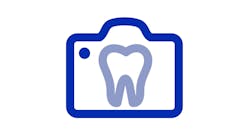Having a documented scripting system creates consistency among team members and leads to a more comfortable, streamlined process to which your patients will respond by accepting treatment.
Roger P. Levin, DDS, MBA
Having effective communication skills is necessary for you to have a successful practice in today`s competitive times. As we at The Levin Group have learned through over 12 years of consulting to more than 2,200 practices, your verbal skills can make the difference between high-level success and an average practice.
In our consulting programs, our clients document all verbal skills that are repeated more than once. Having a documented scripting system creates consistency among team members and leads to a more comfortable, streamlined process to which your patients will respond by accepting treatment.
Verbal skills or "how you say it" can simply skyrocket your case-acceptance rate and production while developing better patient relations. This article is based on a book I created, titled Management Scripts for Effective Communication with Patients. Remember, these scripts are a guideline for doctors, current staff and training new staff. After you have studied these scripts, you need to modify them to fit your comfort zone.
Script 1:
Greeting and guiding patients by phone
Customer service and the image of quality begin with you. A less than perfectly answered telephone demonstrates that the office is not ready to assist patients. The telephone is your lifeline. Whether it is a patient or the referring dentist of a new or current patient calling your office, it is essential that the conversation be handled in a professional manner that emits feelings of concern. Callers must perceive that your staff members care about solving their problems and taking care of their treatment needs, starting with the initial telephone call.
Many front-desk coordinators will ask new patients why they chose this particular office. Because many practices gain new patients from current patients, it is appropriate to ask and to learn this information so that you can thank the referring patient, which may encourage additional referrals.
Script 2:
Meeting and greeting patients in the office
When greeting current patients, you should be just as enthusiastic as if it were their first visit to your office. You want all patients to feel as if your office has opened especially for them. If the front-desk coordinator is busy with the telephone, checking out patients or other administrative details, it is likely that patients may not be properly greeted. Patients should be greeted by name. If you are the only person at the front desk and on the phone when patients arrive, nod to them and acknowledge their arrival. Ignoring a patient`s arrival evokes a negative impression.
This simple exchange, or some version of it, should be standard. Patients never get tired of being acknowledged or feeling that you care about them. Everyone likes to feel special. They tell other people about it, too.
Script 3:
Emergency patients in pain
Communicating with current patients who are experiencing an emergency situation is critical. This is the ultimate test. Whether real or imagined, these patients believe they have an immediate and serious emergency. You can use this situation to enhance a patient`s loyalty to the practice. You have the opportunity to perform productive treatment in most of these cases.
You will want to suggest a time that will not disrupt your schedule. It is unwise to ask the emergency patient, "What time will be good for you?" Emphasize your concern and your willingness to see patients at a time when the doctor can perform treatment for their painful problem. Always present the benefits to the patient.
Script 4:
Scheduling patients
All patients should be guided into appointments. The key to scheduling success is to appoint patients where you want them, but do it in a way that convinces them that you are trying your best to make it as convenient for them as possible. Convince the patient to schedule when you want them to by making it to their benefit. Successful scheduling also has much to do with having confidence, being assertive and having good verbal skills.
The scheduling coordinator should guide the patient into taking an appointment that works well with the practice`s schedule. There are many reasons for scheduling patients at particular times, such as coordination with lab pickup and block scheduling, but make it to their benefit to schedule the appointment when you would like them to schedule it. Managing patients is far easier when they feel that you are focused on them. It is best to give patients a few choices, but patients should not dictate your schedule - you should.
Script 5:
The hygiene pre-appointment system
At The Levin Group, we recommend that patients be pre-appointed for their next hygiene visit before they leave your office. This leads to increased productivity, recare efficiency and improved patient retention. Before implementing a recare system in your office, ensure that each staff member understands his/her importance and learns effective verbal skills for communicating this to patients.
When you tell patients the benefits to pre-appointment scheduling, they feel that the focus is on them and their needs and that they will get the appointment that they want. Also, you give them advance notice by sending the postcard and, if they have a scheduling conflict, they have plenty of time to call and reschedule. As patients return to your office, the pre-appointment system that you put in place will become natural and nearly every patient will be happy to schedule their next hygiene appointment.
Script 6:
Handling cancellations
Cancellations are a major problem for many practices. In the average schedule, one or two cancellations can make a profitable day unprofitable. The front-desk personnel have a challenging opportunity to reduce the number of cancellations when patients call to cancel. It must be handled diplomatically, but firmly. We train our patients to respect the office, but we must do this in a way that helps them feel that we are doing them a favor.
The previous script does not focus on concerns about filling time. Instead, it emphasizes that additional problems might result unless that appointment is kept. The front-desk coordinator reiterated the doctor`s concern and requested that patient be seen as soon as possible. Notice that the front-desk coordinator did not make it easy for the patient. She did not tell the patient that it was OK to miss the appointment. She did tell the patient that if the appointment was missed, it might be a while before another appointment could be scheduled.
Suddenly, we are creating a higher level perception of value and stimulating a greater need on the part of the patient for keeping that appointment. In many cases, the patient will call back and offer to rearrange his or her schedule to keep the appointment. The problem is that we have allowed patients to think that dental appointments are easy to change without any financial or physical penalty. If we convince patients that there may be additional damage to the teeth resulting in more expensive treatment, and they always assume that more work is synonymous with discomfort, we have an opportunity to encourage our patients to keep appointments.
Script 7:
Making a collection call
Collection calls are critical to your practice. While tact and courtesy are necessary, the ramifications of not collecting money within a reasonable time frame can be extremely detrimental. The doctor does not get paid nor receive late payments with interest. The patient may be turned over to collections and then follow through with a malpractice suit in retribution.
Collection calls must be transacted in a way that is firm but will not create an angry liability. Your objective is to persuade the patient to make payments, and a one-on-one telephone call is the best solution.
This first collection call should be pleasant and solicitous. The financial coordinator should make a note of when the check should have arrived in the office and make sure to follow up. If there is no follow-up and the payment does not arrive, the patient will assume that the overdue payment is negotiable. You must create a system in which the financial coordinator is aware if the check does not arrive when it should.
All members of the dental team must have accurate, consistent and sufficient knowledge and information of office policies and strategies, which are part of any management system. This way, your patients will feel confident that they are receiving the highest quality of care and will be more likely to accept treatment. By creating detailed scripts for your staff, everyone in the office will be able to communicate effectively and consistently with patients.
Most people coming into your office will be reluctant. No one truly enjoys coming to the dentist. However, your goal should be to make patients as comfortable as possible so that they have a pleasant experience when they visit your office. Scripts allow you to present yourself effectively and communicate with your patients so that they feel good about their decision to come to your practice and confident when accepting treatment.
*******
Script 1:
Front-desk coordinator: Thank you for calling Dr. Martin`s office. This is Jenny speaking. How may I help you?
Caller: Hi, my name is Ed Miller and I would like to make an appointment. I`m a new patient.
Front-desk coordinator: That`s wonderful, Mr. Miller. We love to see new patients. How did you find out about our practice?
Caller: My friend Kathy Olsen told me about the office. She really likes all of you.
Front-desk coordinator: Oh, Mrs. Olsen is great and we treat many of her family members and friends. Dr. Martin sees all new patients first and performs a comprehensive examination to evaluate your gums and teeth. He also will determine the best course of treatment for optimal oral health. What will work best for you, Thursday at 10 a.m. or Monday at 2 p.m.?
[Proceed to take all patient information.]
Script 2:
Front-desk coordinator: Hi, Mr. Roberts. It`s always a pleasure to see you. How are you today?
Current patient: I`m fine, thank you, Sally. How are you?
Front-desk coordinator: I`m great. By the way, Dr. Wilson is running on time, and we should be able to seat you at 2 o`clock. I knew you`d be pleased to hear that.
Current patient: Terrific. I have to get right back to the office.
Front-desk coordinator: Why not have a cup of coffee, enjoy one of our magazines, and relax until the doctor is ready?
Current patient: I will. Thank you.
Script 3:
Front-desk coordinator: Good morning. Thank you for calling Dr. Frank`s office. This is Joanne speaking. How may I help you?
Patient: Hi Joanne. This is Helen Miller. I have a really bad toothache, and I need something done now. It seems to be in the area where Dr. Frank has been working.
Front-desk coordinator: I am sorry to hear that you are so uncomfortable, Mrs. Miller. You know, it`s important to us to help any patient with an emergency as quickly as we can. Can you describe where you are having pain?
Patient: Yes. It`s on the upper right back tooth. I think that`s the area that Dr. Frank is treating.
Front-desk coordinator: I`m sure that Dr. Frank will want you to come in as soon as possible. We will be able to see you at 10 o`clock, and at that time Dr. Frank will be able to do something to make you more comfortable.
Patient: Thank you for getting me in right away. I`ll be at your office by 10 o`clock.
Script 4:
Scheduling coordinator: Mrs. Murray, Dr. Jones said that your appointment went very well today.
Patient: Yes, it did.
Scheduling coordinator: Dr. Jones asked me to schedule your next visit within the next two weeks. What will work better for you - Monday the 5th at 10 a.m. or Thursday the 8th at 2 p.m.?
Script 5
Hygienist: Mr. Fisherman, we`d like to reserve your six-month recare appointment now so that we may continue to monitor your periodontal maintenance. During this appointment, Dr. Cone also will be examining that bridge on the upper left to be sure that no problems exist. I know that you like early morning appointments, and I can schedule for 8 a.m. on Tuesday, June 14.
Just address this postcard and you will receive it two weeks before your appointment. In the meantime, here is my card - feel free to call me if you have any questions.
Patient: Well, I`m not really sure where I`ll be in six months.
Hygienist: I can certainly understand that you may not know your schedule, but I do know that you like early-morning appointments before going to work. They are very popular times and, if you do not pre-appoint now, I know that you will be disappointed to not get the time that you need. I will, however, send you that postcard two weeks before your scheduled appointment. Can you do me a favor?
Patient: Sure. (Normally, this will be the response.)
Hygienist: When you receive the card two weeks before your scheduled appointment, could you call me immediately, not the day before, to either confirm or reschedule so that we can work with your schedule? Otherwise, I would be worried that you would not get the time you need.
Patient: I guess I can do that.
Script 6:
Front-desk coordinator: Thank you for calling Dr. Wilson`s office. This is Janet speaking.
Patient: Hi Janet. This is Mrs. Roberts. I have an appointment tomorrow with Dr. Wilson at 2 p.m., but I won`t be able to make it.
Front-desk coordinator: Oh, that`s a shame! I know that Dr. Wilson was very concerned about that tooth and wanted to see you as soon as possible to avoid the chance of further damage. The problem is that if you are not able to keep your appointment tomorrow, it will be about six weeks before I can get you back into his appointment schedule. Is there any possible way for you to make it? It is important.
Patient: My boss just scheduled a meeting, and she needs me to be there.
Front-desk coordinator: Would you like to check to see if there
is any way to change the meeting
since it was just arranged? I just wouldn`t want to see any further damage in that area that could require additional treatment.
Patient: Let me check, and I`ll call you back.
Front-desk coordinator: Thank you. I`ll look forward to talking to you soon.
Patient: Yes. I`ll call you back in about half an hour.
Script 7:
Financial coordinator: Hi, Mr. Anderson. This is Jane from Dr. Lane`s office. How are you today?
Patient: Hello, Jane. I`m fine thank you.
The response is usually cool when a patient realizes that this is a collection call.
Financial coordinator: I`m certain that this is an oversight, but we have not received your payment for $275. I wanted to let you know this as soon as possible so that we can bring your account up-to-date. For your convenience, we can put that on a Visa or MasterCard.
Remain silent and let the patient speak next. This is sometimes difficult and uncomfortable, but silence in this situation is a very powerful tool.
Patient: I don`t want to put it on my credit card. Instead, I`ll send you a check this afternoon.
Financial coordinator: That will be fine. I`ll look for your check on Friday, Jan. 8. I appreciate you sending it right away and I`m sorry to bother you.
Patient: Oh, that`s OK. I just simply forgot.





